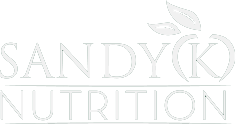Supplements Supplements Supplements
- All Posts
- February 25, 2020
There was a situation whereby I recommended omega 3’s to someone, and this person got increasingly unwell with stomach issues they somehow couldn’t resolve. They actually ended up in the emergency room thinking it was an appendicitis attack! It was not her appendix, but she stopped all supplements and got better. She became so afraid of supplements she swore off all of them including the omegas. So my question to her was “how were you taking them?”. The answer was she was taking the omegas in the morning sometimes without breakfast or very little breakfast (like a piece of toast).
As a holistic nutritionist, I have learned supplements are a great tool for most of us who:
a) don’t always have an optimal diet
b) deal with a lot of stress
c) don’t eat mostly organic, clean food
d) are aging (the body simply doesn’t process nutrients as efficiently as we age!)
e) are going through menopause or andropause
f) are human beings, living in an environment whereby we can’t grow our own food and factory farming, pesticides, etc are prevalent.
So as you can see from the above list of reasons why we might want to take certain supplements, most of us need certain supplements at some point in our lives (but no, supplements won’t fix a bad diet and poor lifestyle choices!). What you cannot do is take them without the knowledge of how and when to take them. They can do harm if not taken properly as you can see by the above real life example. As a general rule for me, I take very few supplements first thing in the morning because I often fast and if I do eat, it’s a small protein fat bar after my workout which simply isn’t enough food.
I am not a huge believer in multi-vitamins, but there are exceptions to this. Unless you live a very erratic life whereby the majority of what you put in your body has very little nutrient density, you should be able to get many of your nutrients through food. Multi-vitamins are a bit like an insurance policy – unless you really need them, they’re kinda useless because they really don’t give you enough of anything to make a difference in your health. Also, you might be adding a few nutrients that you don’t need at all. They may not do you harm, because amounts are small, but also won’t be particularly useful. I would consider this for my son as a university student, considering his lifestyle.
I love the idea of targeted supplements especially if genetically you know you’re predisposed to certain ailments. For example, if one has heart disease and diabetes in family history and carries certain SNPs (variations in DNA that could make you more prone to certain diseases), it maybe a good idea to take COQ10 daily and berberine to be proactive in your health.
Magnesium – Magnesium is a mineral that responsible for over 300 enzymatic processes in the body. These can include heart health, bone health, nervous system regulation, muscle contraction among other important functions. The best forms to take are bisglycinate and l-threonate. Magnesium l-threonate is a form that breaks the blood-brain barrier and is a highly absorbable form that benefits brain health (there are studies that link benefits for those who have suffered concussions!). Magnesium bisglycinate is also highly absorbable and is beneficial for muscular health (I take this when I have a challenging work out to help with muscle soreness), promotes sleep and relaxation, and can even help with migraines. Magnesium is best taken with food or at very least be sure not to be hungry and not on an empty stomach (I often take before bed when I may not have just eaten, but I am also not hungry).
Vitamin D – This is a fat soluble vitamin which means it is stored in the tissues of the body vs excess is eliminated. I always recommend you check your vitamin D levels annually through bloodwork to ensure you’re taking the right dose. Vitamin D helps with many things including bone health, immune health and it helps to fight certain diseases. Obviously the best way to get vitamin D is from the sun, but many of us don’t live in a climate whereby we have enough sun all year round. The best form of vitamin D to take is D3 along with K2. The K helps the D get into the bones. The maximum dosage of K2 shouldn’t exceed approx. 200 mg as a general rule. So I’ll give you an example of how you want to ensure proper dosage. I specifically need approx 4000 IUs in the winter of vitamin D. I have one brand that provides me with 1000 IUs per day of vitamin D3 and 120 mg of K2. I take two doses of this, plus another two doses of 1000 IUs of D only from a different brand to ensure I don’t overdo the K2. This vitamin is best taken with a meal that contains fat to help absorption. Do not take D on an empty stomach.
Probiotics – Most of us know the health benefits of probiotics and there are many types you can choose from that include dairy-based bacteria, soil-based, human-strain, etc. I personally choose to supplement with multi-strain, human-strain bacteria. I could go into great detail on the health benefits of probiotics, but that’s an entirely whole other blog. What I will say is that over 90% of our immune health is in our gut, which is why it’s always a good idea to supplement with probiotics to, at the very least, keep our microbiome healthy. Lets face facts – not many of us eat a diverse enough diet with high quality foods and fermented foods all the time. So…how do we take them? This varies depending on the brand and how it is manufactured. Follow guidelines on the box or speak to your practitioner – ie the brand I take is refrigerated, and is delayed release, and can be taken either with or without food. I take my probiotic first thing in the morning on an empty stomach and it works for me.
Vitamin C – Humans cannot make their own vitamin C (we’ve lost that ability!), which is why we need to get it from food sources. Vitamin C is a water soluble antioxidant that is useful for many functions including immune health, and to repair and heal the body. Because it is water soluble, the body will rid itself of any excess consumed and it doesn’t store or build up in the tissues. Vitamin C is best absorbed with some food and I always look for Vitamin C with Bioflavenoids to enhance the antioxidant properties.
B-Complex – The group of B’s are so important for so many functions! These include aiding in metabolism, helping stress levels, brain health, energy levels, etc. Likely one of the most known of this group of vitamins is B12 which is so important in neurological function and red blood cell production. B12 can ONLY be obtained through animal sources. So if you’re vegan, or a vegetarian that doesn’t eat much dairy or eggs, you may want to supplement. One important note about the group of B’s is often when you supplement with only one (ie a B12 supplement), you can disturb the balance of the other B vitamins, which is why if you need to supplement with B12, it may be a good idea to also take a B-Complex vitamin to ensure this balance isn’t disturbed. B-Complex is well absorbed on an empty stomach but some cannot tolerate this and a symptom maybe nausea, so you can take with a bit of food. Also, best taken in the morning as some may find B-Complex stimulating.
Omega 3’s – Omega 3’s are so important for brain health, eye health, heart health, bone and joint health, fatty liver, and can even help with aged-related mental decline. Rarely do we consume enough of it, which is why everyone in my family takes a good quality Omega 3. Omega 3’s are fat soluble and you need to take them with a full meal that contains fat for absorption and to avoid stomach issues. I take mine with lunch and/or dinner. What to look for in a quality Omega 3 as there are SO many out there on the market: you want GOED standard for purity or third party tested to ensure they’re safe and contain what they say they have, make sure there is a good amount of EPA/DHA – ie some will say 1000 mg of fish oil with only 320 mg of EPA/DHA – you want that EPA/DHA to be much higher!
Calcium – Calcium is best taken with food to avoid kidney stones and in split doses vs. once a day in a larger dose. Calcium may compete for absorption with other minerals or medications so always check on this before taking. Chelated forms are easiest on the stomach and best absorbed. There are some great bone health formulations on the market that help for those who must take calcium such as AOR Bone Basics, otherwise I’d recommend getting your calcium from food sources.
Iron – Iron is a tough one for me personally whereby I had a lot of issues with supplementation. I was very low in ferritin (this is your iron stores), and I always got severe stomach pain from taking iron. I always suggest digging deeper with a practitioner as to why you’re low in iron the first place vs just supplementing. My situation in particular was that I had low stomach acid. Chemistry 101 – you cannot absorb iron or B12 (or calcium!) from food if you have very low stomach acid. I corrected the issue and no longer take iron by taking betaine hydrochloric acid with meals. I am no longer low in iron and my B12 is good. Iron, as an essential mineral, is best taken about 1 or 2 hours after meals because it might be hard on the stomach, otherwise best absorbed on an empty stomach if you can tolerate it. Iron can compete for absorption with other minerals and medications so check on this to know how to space out.
Always do your research or ask a practitioner for possible medication interactions as well. As a general rule, many supplements, but not all, absorb better and are easier on the gut when you take with food. If you take any herbs, they are often tolerated on an empty stomach, but always check. Anything detoxifying, you likely need to take away from food, medications and other supplements. Some minerals can bind to other nutrients so you may need to be careful with these as well. I hope this helps some of you who take these common supplements. So what’s the takeaway for this? If you’re unsure of how to take something, work with a practitioner who can help you.

Hello! I am Sandy Kruse
I am a firm believer that life experiences bring you to where you should be. I left my very-corporate, 10-11 hour days, sales management job over 10 years ago to raise my children.
Interesting Posts

Endings and New Beginnings.
August 30, 2022

My Concert Tribe
February 25, 2020

Fierce Love
March 7, 2020

Immune Health
November 29, 2020
Supplements Supplements Supplements
February 25, 2020
“If we could give every individual the right amount of nourishment and exercise, not too little and not too much, we would have the safest way to health”
- Hippocrates
Related Posts

Wellness Is Not What You Think
January 10, 2024

Let’s Dance Into 2023 My Beautiful People
January 1, 2023

Endings and New Beginnings.
August 30, 2022

Have We Forgotten Empathy?
January 13, 2021

